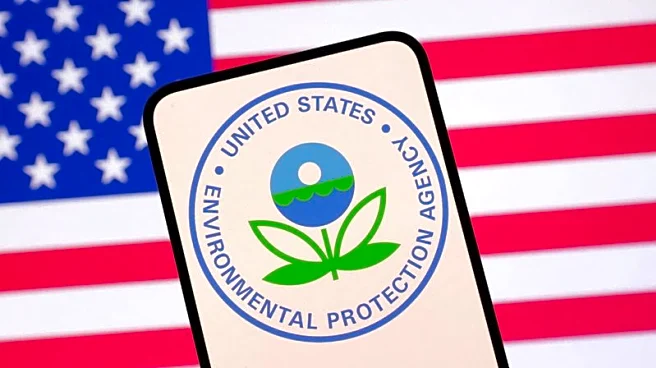What's Happening?
A federal appeals court has ruled against President Trump's use of national emergencies to impose broad import tariffs, challenging his authority to bypass Congress in setting trade policies. The U.S. Court of Appeals for the Federal Circuit found that Trump's tariffs, which were applied to nearly all U.S. trading partners, exceeded the powers granted under the International Emergency Economic Powers Act. This decision follows a previous ruling by a specialized federal trade court in New York. The court's decision allows time for an appeal to the U.S. Supreme Court, maintaining the tariffs temporarily. The ruling does not affect tariffs on steel, aluminum, and autos, which were justified by national security concerns. The administration argued that revoking these tariffs could financially harm the U.S. Treasury, which has seen tariff revenues double to $159 billion by July.
Why It's Important?
The court's decision is significant as it challenges the extent of presidential power in trade policy, potentially reshaping U.S. trade strategy. If the tariffs are overturned, it could lead to refunds of collected import taxes, impacting government revenue. The ruling may weaken the administration's negotiating leverage in international trade deals, as foreign governments might resist future demands or seek to renegotiate terms. This legal setback could also influence the broader economic landscape, affecting businesses and consumers through potential changes in import costs and trade relations.
What's Next?
President Trump plans to appeal the decision to the U.S. Supreme Court, aiming to preserve his tariff strategy. The administration may explore alternative legal avenues to impose tariffs, such as the Trade Act of 1974 or Section 232 of the Trade Expansion Act of 1962, though these options have limitations. The outcome of the Supreme Court appeal will be crucial in determining the future of U.S. trade policy and the president's ability to unilaterally impose tariffs.
Beyond the Headlines
The ruling raises questions about the balance of power between the executive and legislative branches in setting trade policy. It highlights the legal and constitutional challenges of using emergency powers for economic measures, potentially setting precedents for future administrations. The decision may also influence global perceptions of U.S. trade reliability and its commitment to international agreements.










